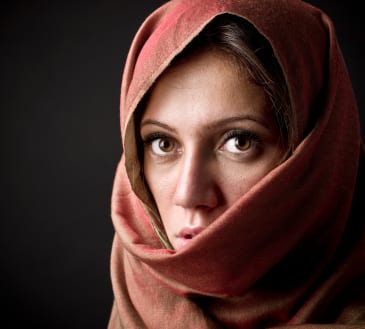A “burqa” is an enveloping outer garment worn by women in some Islamic traditions to cover their bodies in public places. The burqa can refer to the woman’s loose body-covering plus the head-covering and face-veil, but is more generally understood to refer to just the head-covering. I, like many others, have seen women wearing these pieces, but have never truly understood their significance. I always assumed they were a vestige of cultural and religious tradition, and I never expected them to be at the root of such uproarious controversy. But since France’s recent ban of most types of face-coverings, these little pieces of fabric have spurred other European countries to consider similar laws and inspired fear in French Muslims that the rule will permanently stigmatize them.
Reasoning behind the law
Back in July, France’s lower house of parliament overwhelmingly approved a ban on wearing burqa-like veils in any place that can be considered a public space, including in the streets. In September, the law officially passed, dismissing any questions of unconstitutionality, as part of an effort to define and protect French values and ideals. People supporting the law say the face-coverings are not in line with France’s position on women’s equality or its “secular tradition”. “Given the damage it produces on those rules which allow the life in community, ensure the dignity of the person and equality between sexes, this practice, even if it is voluntary, cannot be tolerated in any public place,” the French government said when it sent the measure to parliament in May.
Popular in France, not so much abroad.
The ban, although wildly popular in France (it got a 335-1 vote in the lower house!), is not a hit abroad. While French people support the ban by a margin of more than four to one, two out of three Americans opposed it, according to this spring’s Pew Global Attitudes Project. Spain and Belgium have similar bans in the works, but it seems as if they are in the minority opinion worldwide. Amnesty International immediately condemned the vote to pass the ban, and John Dalhuisen, their expert on discrimination in Europe, insisted that “a complete ban on the covering of the face would violate the rights to freedom of expression and religion of those women who wear the burqa or the niqab in public as an expression of their identity or beliefs.” France’s government, however, does not see it this way. The country has had much difficulty integrating generations of immigrants and their children, and last year it launched a nationwide debate on what it means to be French. Assimilation is the only path for immigrants and minorities, the government insists, as evidenced by the weeks of rioting among many youth minorities in 2005. French president Nicolas Sarkozy has said the the country has made its choice on the matter, and that he doesn’t want women in France to be “trapped behind pieces of fabric.” Legislator Berengere Poletti, of Sarkozy’s party, said face-covering veils “are a prison for women, they are the sign of their submission to their husbands, brothers or fathers.”
How it makes Muslims feel.
The ban on face-coverings has disconcerted many Muslims in France and elsewhere, who fear that the ban will stigmatize them. France has the highest population of Muslims in Europe with a whopping 5 million of the country’s 64 million people claiming to practice the religion. There is fear that the law could produce anti-Islam sentiment or make Muslim women feel awkward about their desire to wear a burqa. Many women who practice Islam wear the veils voluntarily, like an outward sign of acceptance of their role in the religion. Socialist Senator Bariza Khiari, one of France’s few Muslim politicians, fears some women targeted “will withdraw into themselves, stay in the house, and instead of doing education projects, we’re doing a ban, which I regret.”
The inside scoop: details of the ban.
Even though the law is generally taken to refer to burqas worn my Muslim women, the wording of the rule is carefully constructed so as not to single out Muslims. The ban has been called the “anti-burqa law”, but the official name for it is “the bill to forbid concealing one’s face in public.” It refers neither to Islam, nor to veils in any way. Officials say the law is not discriminatory because it applies to everyone, not just to Muslims. Exceptions to the ban include motorcycle helmets, masks for health reasons, fencing, skiing, or carnivals. Violators of the law will be fined 150 euros ($190) and/or a citizenship course as punishment. The law also targets anyone who forces a woman to wear a veil–these people risk a year in prison or a 15,000-euro ($19,000) fine. Although the law was passed last month, it won’t be enforced for another 6 months, which will give authorities time to persuade women who veil themselves voluntarily to stop.





